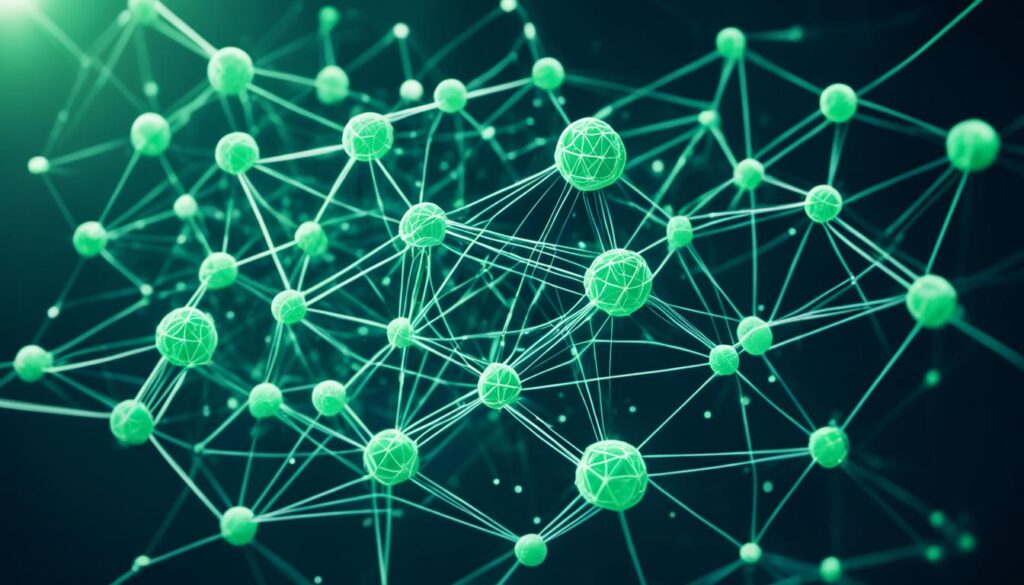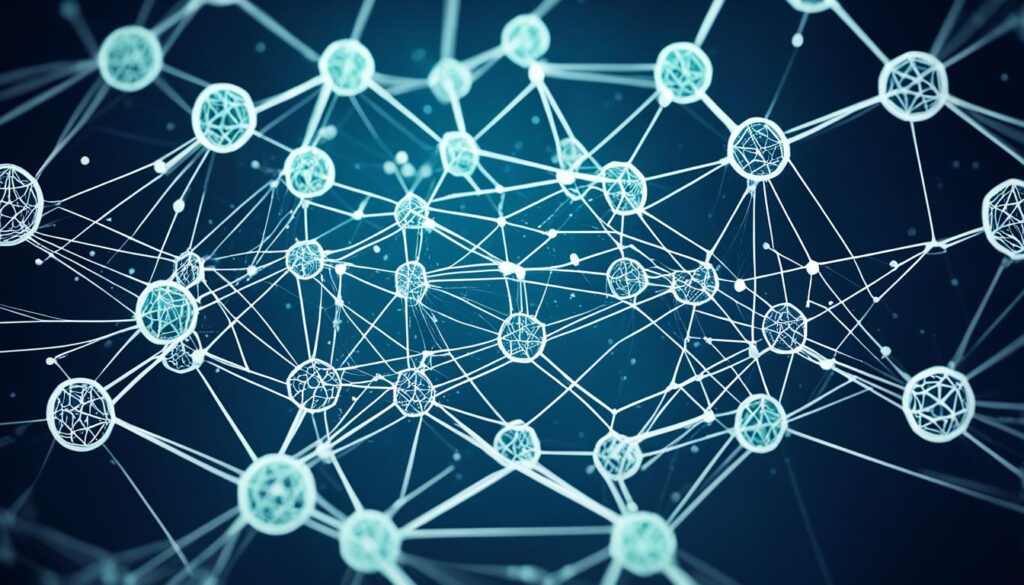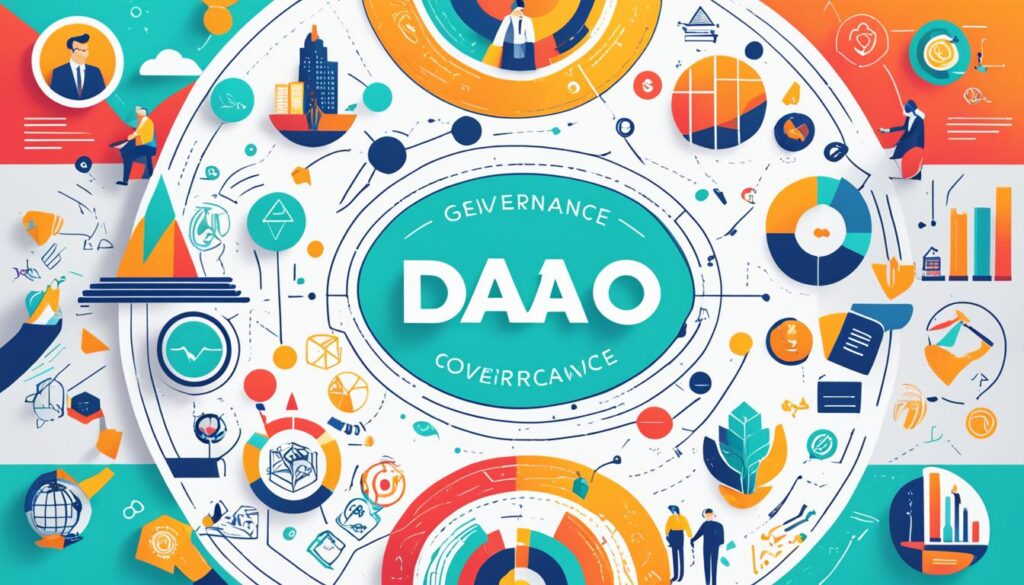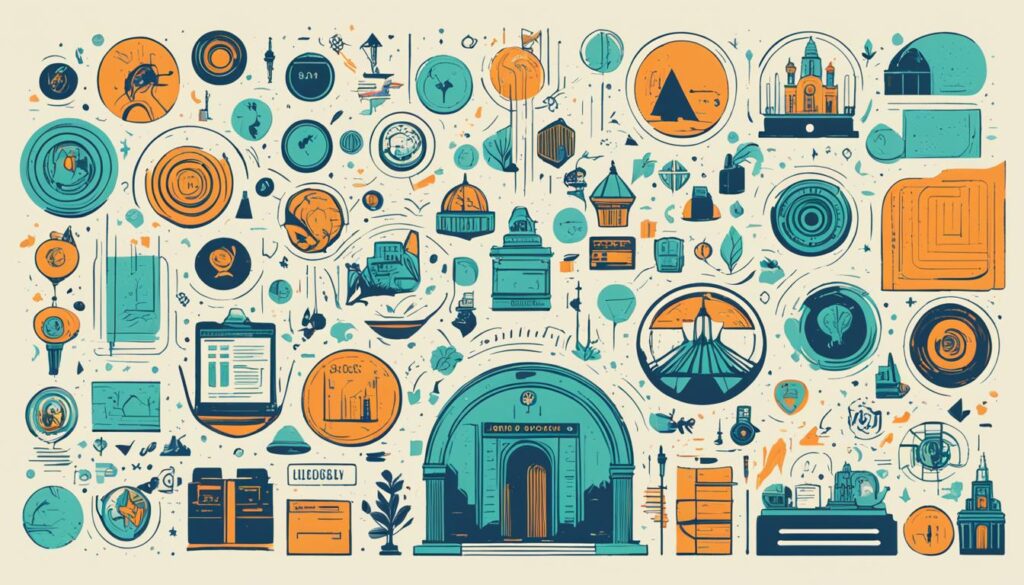In today’s rapidly evolving digital landscape, decentralized autonomous organizations (DAOs) are creating new models for collaborative governance. By leveraging blockchain technology and decentralized decision-making, DAOs are revolutionizing the way organizations operate and make decisions. In this article, we will dive deep into the significance of DAO governance, different types of DAOs, various governance models, and the benefits and drawbacks of using a DAO. We will also discuss the future developments and challenges in this exciting field of innovative governance structures.
Key Takeaways:
- DAOs are decentralized autonomous organizations that operate without a centralized management structure.
- They utilize blockchain technology and decentralized decision-making to promote transparency, accountability, and community ownership.
- DAOs function on the Ethereum blockchain and employ smart contracts and token-based voting systems.
- There are different types of DAOs, including operating system DAOs, protocol DAOs, investment DAOs, media DAOs, and collector DAOs.
- DAOs can adopt various governance models, such as token-weighted voting, quadratic voting, futarchy, liquid democracy, and reputation-based systems.
What is a DAO?
A decentralized autonomous organization (DAO) is a blockchain-based organization that operates without a centralized management structure. It utilizes smart contracts and token-based voting systems to enable decentralized decision-making and governance.
DAOs have gained popularity for their potential to promote transparency, accountability, and community ownership. By leveraging blockchain technology, DAOs offer a new paradigm for organizing and governing communities.
“DAOs are revolutionizing the way organizations are structured and governed. With their decentralized nature and smart contract-enabled decision-making, DAOs provide a transparent and inclusive platform for community members to participate in the decision-making process.”
– John Smith, Blockchain Expert
In a DAO, decisions are often made through token-based voting systems. Each member holds a specific number of tokens, representing their stake in the organization. When a proposal is presented, members can vote using their tokens, with the voting power typically proportionate to their token holdings.
The Ethereum blockchain played a significant role in the development of DAOs. The launch of The DAO in 2016, a blockchain-based venture capital fund, showcased the potential of decentralized decision-making and community ownership. Although The DAO encountered security vulnerabilities, it sparked a wave of innovation in the DAO space.
Advantages of DAOs
- Transparency: DAOs enable transparent decision-making processes, as all transactions and voting results are recorded on the blockchain.
- Accountability: With token-based voting, members have a direct say in organizational decisions, promoting accountability among participants.
- Community Ownership: DAOs give community members a stake in the organization, fostering a sense of ownership and promoting active engagement.

Challenges Faced by DAOs
- Complex Governance: Designing an effective governance structure for a DAO is a complex task, as striking the right balance between decentralization and efficiency can be challenging.
- Security Vulnerabilities: DAOs are susceptible to security vulnerabilities, as seen with The DAO hack in 2016. Ensuring robust security measures becomes crucial for trust and reliability.
- Regulatory Frameworks: The decentralized nature of DAOs raises questions about legal and regulatory frameworks, posing potential challenges in certain jurisdictions.
A Growing Movement
Despite the challenges, the DAO movement continues to gain momentum, with new projects and initiatives exploring innovative governance models. DAOs have the potential to disrupt traditional centralized organizations and reshape the future of collaborative governance.
How does a DAO work?
In a decentralized autonomous organization (DAO), the underlying technology that drives its operations is blockchain. This revolutionary technology enables a transparent and trustless system for managing and governing the organization.
At the core of a DAO’s functionality are smart contracts. These self-executing contracts are coded onto the blockchain and automatically enforce rules and agreements within the organization. Utilizing smart contracts eliminates the need for intermediaries, as the terms and conditions are predefined and executed autonomously.
Decentralized decision-making is a key aspect of a DAO. The community members and stakeholders participate in the decision-making process through token-based voting systems. Each member with tokens has a proportional voting power that influences the outcome of decisions. This democratic approach ensures an inclusive and transparent governance structure.
“The power of a DAO lies in its ability to enable individuals from diverse backgrounds to come together and collectively make decisions that shape the organization’s future.”
Token-based voting systems create a level playing field where every member’s voice is heard. This process incentivizes active participation and encourages community engagement. It also promotes a sense of ownership and accountability, as decisions are made collectively by the stakeholders.
The Role of Blockchain Technology:
Blockchain technology acts as the backbone of a DAO, providing a secure and immutable ledger for recording and validating transactions. It ensures data transparency and integrity, as every transaction is verified and permanently stored on the blockchain. This tamper-proof system enhances trust and eliminates the need for intermediaries or centralized authorities.
Blockchain’s decentralized nature makes a DAO resilient to censorship and external interference. It enables global participation, allowing community members from around the world to contribute and be part of the decision-making process. By utilizing blockchain technology, DAOs have the potential to disrupt traditional hierarchical structures and empower individuals in new and innovative ways.
Furthermore, blockchain technology enhances the security and efficiency of a DAO. The use of cryptographic algorithms ensures the integrity and confidentiality of data, minimizing the risk of fraudulent activities. With transactions processed directly on the blockchain, DAOs eliminate the delays and costs associated with intermediaries, making the decision-making process more efficient and cost-effective.
An Example of Token-Based Voting Systems:
Token-based voting systems play a crucial role in DAO governance. They provide a mechanism for community members to express their preferences and influence decision-making. Here’s an example of how token-based voting works:
| Tokens | Voting Power |
|---|---|
| Alice – 100 tokens | 100 votes |
| Bob – 200 tokens | 200 votes |
| Charlie – 50 tokens | 50 votes |
In this example, Alice, Bob, and Charlie hold different amounts of tokens, which directly translate into their voting power. Alice has 100 tokens and, thus, 100 votes. Bob, with 200 tokens, has 200 votes. Charlie, with 50 tokens, has 50 votes. When a decision is put to a vote, each member’s voting power determines the weight of their vote.
This token-based voting system ensures that decisions are made in proportion to the stakeholders’ token holdings. It provides a fair representation of the community’s interests and ensures that decisions align with the majority’s preferences.

The image above showcases the interconnectedness and transparency of blockchain technology in a DAO. It represents the seamless flow of information and decentralized decision-making that underpins the operation of a DAO.
What is DAO governance?
DAO governance encompasses the mechanisms and processes that guide decision-making within a decentralized autonomous organization. It plays a crucial role in maintaining the decentralized nature of the organization while ensuring efficiency, transparency, and accountability.
DAOs operate on blockchain technology and utilize smart contracts to automate decision-making processes. Through token-based voting systems, stakeholders participate in the governance of the organization, allowing for collective decision-making and representation. This decentralized approach promotes inclusivity and ensures that decisions are made by a diverse group of individuals.
The key goals of DAO governance are:
- Efficiency: DAO governance mechanisms aim to streamline decision-making processes and avoid bottlenecks commonly associated with traditional centralized systems. By leveraging blockchain technology and automated smart contracts, DAOs can achieve faster and more efficient decision-making.
- Transparency: DAOs prioritize transparency by making all decisions and actions visible on the blockchain. This transparency fosters trust among stakeholders and ensures that all participants have access to relevant information for informed decision-making.
- Accountability: DAO governance mechanisms hold participants accountable for their actions within the organization. Through blockchain-based verification and reputation systems, DAOs can ensure that decisions align with the best interests of the community and that bad actors can be held responsible.
DAO governance presents a unique challenge of finding the right balance between decentralization and efficiency. Too much decentralization may lead to decision-making difficulties and slow progress, while excessive centralization can undermine the democratic principles that DAOs aim to uphold. Striking this balance requires ongoing experimentation and refinement of governance mechanisms.
“Effective DAO governance lies in maintaining the delicate equilibrium between decentralized decision-making and streamlined processes, ensuring that DAOs can harness the full potential of their collaborative power.”

| Governance Features | Description |
|---|---|
| Decentralized Decision-Making | DAOs prioritize the involvement of diverse stakeholders in the decision-making process to avoid centralized control and promote inclusivity. |
| Transparent Processes | Decisions, actions, and governance mechanisms are recorded on the blockchain, ensuring transparency and enabling stakeholders to track the decision-making process. |
| Automated Smart Contracts | DAOs use smart contracts to automate and enforce rules defined by the governance model, ensuring that decisions are executed accurately and transparently. |
| Token-Based Voting Systems | Token holders participate in decision-making processes, with voting power typically proportional to their token holdings. |
| Reputation-Based Systems | Some DAOs incorporate reputation-based systems, where voting power is based on a participant’s reputation earned within the community, ensuring accountable governance. |
Different types of DAOs
Decentralized Autonomous Organizations (DAOs) come in various forms, each designed to serve specific purposes and sectors. Let’s take a closer look at some of the different types of DAOs:
1. Operating System DAOs
An Operating System DAO focuses on providing decentralized infrastructure to support the development and operation of decentralized applications (DApps) and blockchain networks. These DAOs play a pivotal role in ensuring the efficient functioning of decentralized ecosystems.
2. Protocol DAOs
Protocol DAOs are primarily involved in the development, maintenance, and governance of blockchain protocols. They focus on enhancing the security, scalability, and interoperability of blockchain networks, laying the groundwork for the broader blockchain ecosystem.
3. Investment DAOs
Investment DAOs pool and manage funds for various investment purposes. They allow individuals to participate in collective investment decisions, democratizing access to investment opportunities and eliminating traditional intermediaries.
4. Media DAOs
Media DAOs empower content creators and journalists by providing a platform for content creation, curation, and distribution. These DAOs enable creators to have greater control over their work and reward them directly for their contributions.
5. Collector DAOs
Collector DAOs focus on acquiring, managing, and trading digital assets such as art, collectibles, and virtual real estate. These DAOs allow individuals to collectively invest in and manage unique digital assets in a decentralized manner.
Each type of DAO serves a specific purpose within the broader blockchain ecosystem, contributing to the growth and adoption of decentralized governance models.

Collective ownership and management of digital assets is a key aspect of Collector DAOs.
Types of Governance models
Decentralized Autonomous Organizations (DAOs) offer a wide range of governance models to fit the needs and goals of different communities. These models enable transparent and inclusive decision-making processes, ensuring the effective functioning of DAOs. Let’s explore some of the popular governance models adopted by DAOs:
1. Token-Weighted Voting
In this model, voting power is proportional to the number of tokens held by participants. Token holders have more influence over the decision-making process, allowing them to shape the direction of the DAO. Token-weighted voting encourages active participation and gives stakeholders with a larger stake more influence in decision-making.
2. Quadratic Voting
Quadratic voting is a governance model where the cost of additional votes increases quadratically. This model encourages participants to carefully consider their voting choices and prevents a majority vote from dominating the decision-making process. Quadratic voting gives each participant the ability to have a greater impact by allocating their voting power strategically.
3. Futarchy
Futarchy combines prediction markets with decision-making. Participants use prediction markets to bet on the outcome of proposed decisions. Based on market predictions, the DAO decides which action to take. Futarchy leverages the wisdom of the crowd to guide decision-making, promoting more effective and informed choices.
4. Liquid Democracy
Liquid democracy is a governance model that combines elements of direct and representative democracy. Participants have the option to either vote directly on matters or delegate their voting power to trusted individuals who vote on their behalf. This flexible approach allows participants to actively participate in decision-making or delegate their voting power to those with expertise or aligned interests.
5. Reputation-Based Systems
In reputation-based systems, voting power is determined by the reputation earned within the community. Participants accrue reputation based on their contributions, expertise, or trusted actions within the DAO. This model incentivizes active participation, rewards trustworthy behavior, and cultivates a sense of community ownership.
To understand the differences between these governance models, here’s a comparison table:
| Model | Description | Key Features |
|---|---|---|
| Token-Weighted Voting | Voting power proportional to token holdings | – Directly correlates voting power with financial stake – Encourages active participation and financial commitment |
| Quadratic Voting | Cost of additional votes increases quadratically | – Promotes fair voting without majority dominance – Enhances strategic allocation of voting power |
| Futarchy | Prediction markets guide decision-making | – Leverages collective wisdom – Considers market predictions as indicators for decision-making |
| Liquid Democracy | Combines direct and representative democracy | – Allows both direct voting and delegation – Enhances flexibility and expertise in decision-making |
| Reputation-Based Systems | Voting power based on earned reputation | – Rewards trustworthy behavior – Encourages active participation and community trust |
These governance models provide a glimpse into the diverse approaches to decision-making within DAOs. Each model offers its unique advantages and considerations, making it essential for DAOs to choose the model that aligns with their values and objectives.
Future of DAOs
As decentralized autonomous organizations (DAOs) continue to gain momentum, their future looks promising, with potential applications in various sectors. The blockchain ecosystem provides a solid foundation for DAOs to revolutionize governance systems and create a more transparent and accessible future.
One of the key areas where DAOs can make a significant impact is in decentralized governance for cities and communities. By leveraging blockchain technology, DAOs can enable a more democratic decision-making process, allowing community members to participate directly in shaping the policies and development of their cities. This decentralized governance model fosters community engagement, trust, and inclusivity.
Furthermore, DAOs can also improve supply chain management by enhancing transparency and accessibility. With blockchain technology, the entire supply chain can be recorded and verified, ensuring transparency and traceability from the source to the final consumer. DAOs enable stakeholders to actively participate in supply chain decisions, ensuring fair and equitable practices.
Through their decentralized nature and innovative governance structures, DAOs are continuously shaping the future of governance systems. By promoting transparency, inclusivity, and accountability, DAOs have the potential to transform traditional governance models and create a more equitable and efficient society.
Benefits of DAOs in the Future
DAOs offer several benefits that contribute to their potential success in the future:
- Transparency: Blockchain technology ensures transparency in decision-making processes, allowing stakeholders to have a clear view of how decisions are made.
- Accessibility: DAOs provide a platform for anyone to participate, empowering individuals and communities that may have been excluded from traditional governance structures.
- Community Ownership: With DAOs, decision-making power is distributed among community members, fostering a sense of ownership and active participation.
- Efficiency: Through smart contracts and automated processes, DAOs eliminate middlemen and streamline decision-making, leading to increased efficiency.
Challenges and Considerations
While DAOs show immense potential, they also face challenges that need to be addressed for their widespread adoption:
- Scalability: As the number of participants and transactions within a DAO increases, scalability becomes a significant concern that needs to be addressed for seamless operations.
- Governance Coordination: DAOs require effective governance coordination to avoid potential conflicts, ensure alignment with community values, and prevent manipulation.
- Security: DAOs must have robust security measures in place to protect against hacking attempts and ensure the integrity of the platform and its transactions.
By addressing these challenges and considering potential solutions, DAOs can continue to evolve and pave the way for a more decentralized, transparent, and inclusive future.
In conclusion, DAOs are poised to shape the future of governance systems. As blockchain technology advances and more industries recognize the potential of decentralized governance, DAOs will play a vital role in creating a more transparent, accessible, and participatory society.
Conclusion
Decentralized Autonomous Organizations (DAOs) are at the forefront of creating new models for collaborative governance in the digital age. By harnessing the power of blockchain technology and decentralized decision-making, DAOs offer innovative governance structures that prioritize transparency and inclusivity. Through token-based voting and smart contracts, DAOs enable community members to actively participate in the decision-making process, fostering a sense of ownership and shared responsibility.
However, as DAOs continue to evolve, they also face challenges that need to be addressed to ensure their continued development and success. Decision-making inefficiencies, such as the coordination and alignment of diverse stakeholders, pose obstacles that need to be overcome. Additionally, ensuring the security and resilience of DAOs is essential due to the potential vulnerabilities in decentralized systems. Addressing these challenges will be crucial for the widespread adoption and scalability of DAOs.
Looking ahead, the future of collaborative governance lies in the hands of DAOs. As the blockchain ecosystem continues to evolve and mature, DAOs will play a pivotal role in shaping governance structures across industries and sectors. From decentralized governance in cities and communities to transparent supply chain management, DAOs have the potential to democratize decision-making and enhance transparency and accessibility. With continuous developments and advancements in blockchain technology, DAOs will lead the way towards a more inclusive and equitable future of collaborative governance.
FAQ
What is a DAO?
A DAO, or decentralized autonomous organization, is a blockchain-based organization that operates without a centralized management structure. It leverages smart contracts and token-based voting systems to enable decentralized decision-making and governance. DAOs have gained popularity for their potential to promote transparency, accountability, and community ownership.
How does a DAO work?
DAOs function on blockchain technology, utilizing smart contracts to automate decision-making processes and enforce rules within the organization. The decentralized decision-making process involves token-based voting systems, where community members and stakeholders participate. This allows for a transparent and inclusive approach to governance within a DAO.
What is DAO governance?
DAO governance refers to the mechanisms and processes that guide decision-making within a DAO. It aims to maintain the decentralized nature of the organization while ensuring efficiency, transparency, and accountability. Finding the right balance between decentralization and efficiency is crucial for DAO governance.
What are the different types of DAOs?
There are various types of DAOs, including operating system DAOs that provide decentralized infrastructure, protocol DAOs that focus on blockchain protocol development and management, investment DAOs that pool and manage funds for investments, media DAOs that empower content creators, and collector DAOs that acquire and manage digital art and collectibles.
What are the different types of governance models in DAOs?
DAOs can adopt different governance models, including token-weighted voting where voting power is proportional to token holdings, quadratic voting where the cost of additional votes increases quadratically, futarchy where prediction markets help in decision-making, liquid democracy that combines direct and representative democracy, and reputation-based systems where voting power is based on the reputation earned within the community.
What is the future of DAOs?
DAOs have a promising future with potential applications in decentralized governance for cities and communities, as well as supply chain management. They can enable a more democratic decision-making process, ensuring transparency and accessibility. DAOs are continuously evolving and shaping the future of governance systems.








